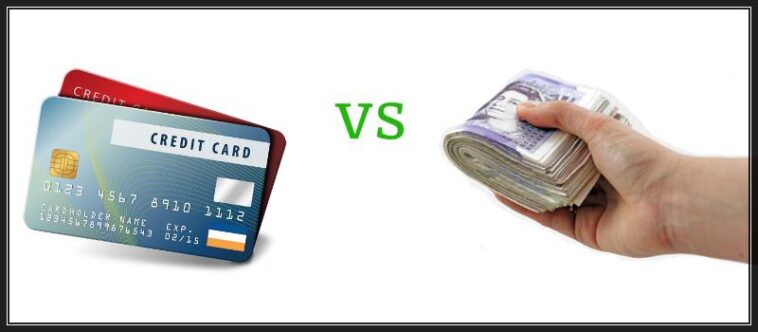When it comes to managing personal finances, you often find yourself choosing between cash loans and credit cards for different needs. Both options have distinct benefits and drawbacks, depending on your financial goals and situation. Here, we look at the pros and cons of each, helping you understand which might be better suited for your needs. Let’s explore four different aspects of cash loans and credit cards so that by the end, you’ll feel empowered to make an informed choice.
Cash Loans: Understanding Your Options

When you need to borrow a specific sum of money, a cash loan might be one of the first things you think of. Whether you’re looking to cover an emergency expense or finance a larger purchase, cash loans provide a direct and simple way to access funds. A key advantage here is the ability to borrow a lump sum with fixed terms for repayment. Cash loans, especially personal loans, offer flexibility in how you use the funds, which is ideal if you don’t want to be limited by the purpose-specific nature of some loans.
Cash loans can be something like payday loans or personal installment loans, each having different terms. These loans are often unsecured, meaning you don’t have to put up collateral, but they do have higher interest rates than secured loans. That’s something to keep in mind when deciding how much you want to borrow.
Installment Loans: Flexibility in Borrowing
Installment loans are a form of cash loan but offer a bit more structure and flexibility. Instead of borrowing small amounts of cash, installment loans help you to borrow a larger sum that you can repay over a series of fixed, regularly scheduled payments.
This structure can help with budgeting and financial planning, because you’ll know exactly how much you owe each month and for how long. There are even many reputable installment loans online where you can compare terms and offers from the convenience of home.
A major advantage of installment loans is their versatility. While credit cards limit your borrowing to a revolving line of credit with high-interest rates on outstanding balances, installment loans let you know upfront how much you’ll pay in interest over the loan term.
This is particularly useful if you’re dealing with a significant expense like a home renovation, medical bills, or consolidating debt. Installment loans may even have lower interest rates compared to credit cards, which makes them a more cost-effective option in the long run.
Credit Cards: Convenience and Ongoing Access to Credit

Credit cards offer something cash loans don’t—ongoing access to a revolving line of credit. This means that as long as you stay within your credit limit and make at least the minimum payment, you can borrow repeatedly without needing to apply for a new loan.
This can be incredibly convenient for everyday expenses or when you have small, ongoing purchases. You can earn helpful rewards like cash back or travel points, which can be an added benefit to using a credit card responsibly.
However, this ease of use and convenience comes with a significant drawback: high-interest rates. Credit cards often come with interest rates much higher than installment loans, and if you don’t pay off your balance in full each month, you can quickly accumulate expensive debt.
One key point in favor of credit cards is the grace period. Most credit cards offer a window where no interest is charged if you pay off the balance in full by the due date. This allows you to borrow money interest-free for short periods, something cash loans don’t offer.
Cash Loans for Emergencies Versus Credit Cards for Day-to-Day Spending
Cash loans and credit cards often serve different financial purposes. When you face an emergency—like unexpected medical bills or urgent car repairs—a cash loan can provide immediate relief with the funds you need to cover those expenses.
Since cash loans tend to come in lump sums, they’re well-suited for these types of situations where you need a specific amount right away.
Credit cards, on the other hand, are more suitable for day-to-day spending and smaller, recurring purchases. Whether it’s groceries, gas, or a new outfit, credit cards allow you to manage ongoing expenses without the need for separate loans. Some cards even come with benefits such as purchase protection or extended warranties on items, making them more attractive for regular spending.
Cash Loan Eligibility and Application Process

While cash loans offer convenience and flexibility, they also come with specific eligibility requirements and an application process that can vary depending on the lender. Many cash loans, especially personal loans, require you to meet certain credit score criteria, provide proof of income, and submit personal identification documents.
The approval process is typically straightforward, but some lenders might take longer to assess your application if additional verifications are needed.
The good news is that many lenders now offer online applications, making it easy to compare loan terms and submit applications from the comfort of your home. However, it’s essential to review the loan’s fine print carefully to understand any hidden fees, such as origination fees or prepayment penalties.
On the flip side, credit cards often come with a more streamlined approval process, especially if you have an existing relationship with the issuer, making credit card applications quick and convenient.
The Pros and Cons of Credit Card Minimum Payments
Pros of Minimum Payments:
- Offers flexibility in making payments.
- Helps avoid late fees and keeps your account in good standing.
Cons of Minimum Payments:
- Prolongs the time it takes to pay off the balance.
- Leads to a buildup of interest over time, increasing the total cost of your debt.
Cash Loans vs. Credit Cards:
- Cash loans come with fixed monthly payments, ensuring you pay off the loan in full by the end of the term.
- Credit cards offer more flexibility in adjusting payments but require careful management to avoid accumulating debt.
Debt Consolidation: A Smart Financial Move

If you’re juggling multiple credit cards with varying balances and high interest rates, taking out a personal loan to consolidate your debt into one fixed monthly payment can be a smart financial move. Many personal loans offer lower interest rates than credit cards, meaning you can save money in the long run while simplifying your finances.
For debt consolidation, the key is to find a cash loan with favorable terms—ideally with a lower interest rate and no early repayment fees. Once you’ve consolidated your debts into one loan, you’ll have a clearer picture of your repayment timeline and total interest costs.
Credit cards can also be used for balance transfers to consolidate debt, but be cautious of balance transfer fees and the high-interest rates that may kick in once the introductory period ends. Some balance transfer offers come with 0% APR for a limited time, but it’s crucial to pay off the balance before the regular interest rate resumes, or you could end up with even more debt.
Making the Right Choice for Long-Term Financial Health
When considering whether to choose a cash loan or a credit card, it’s important to think about your long-term financial goals. If you’re looking to cover a large expense with a clear repayment plan, a cash loan may provide the structure and predictability you need to budget effectively.
On the other hand, if you value flexibility and want ongoing access to a line of credit, a credit card might be more suitable. Credit cards can offer rewards, convenience, and the ability to borrow as needed, but they come with the risk of high-interest rates if you carry a balance over time.
Ultimately, the decision between a cash loan and a credit card will depend on your unique financial situation and goals. Whether you choose the stability of a loan or the flexibility of a credit card, borrowing smart means carefully considering interest rates, repayment terms, and your ability to manage debt responsibly.



